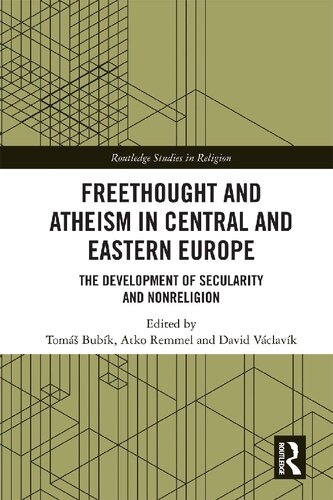

Most ebook files are in PDF format, so you can easily read them using various software such as Foxit Reader or directly on the Google Chrome browser.
Some ebook files are released by publishers in other formats such as .awz, .mobi, .epub, .fb2, etc. You may need to install specific software to read these formats on mobile/PC, such as Calibre.
Please read the tutorial at this link: https://ebookbell.com/faq
We offer FREE conversion to the popular formats you request; however, this may take some time. Therefore, right after payment, please email us, and we will try to provide the service as quickly as possible.
For some exceptional file formats or broken links (if any), please refrain from opening any disputes. Instead, email us first, and we will try to assist within a maximum of 6 hours.
EbookBell Team

4.8
44 reviewsThis book provides the first comprehensive overview of atheism, secularity and non-religion in Central and Eastern Europe in the twentieth and twenty-first centuries. In contrast to scholarship that has focused on the ‘decline of religion’ and secularization theory, the book builds upon recent trends to focus on the ‘rise of non-religion’ itself. While the label of ‘post-communism’ might suggest a generalized perception of the region, this survey reveals that the precise developments in each country before, after and even during the communist era are surprisingly diverse.
A multinational team of contributors provide interdisciplinary case studies covering Estonia, Latvia, Lithuania, Russia, Ukraine, Poland, the Czech Republic, Slovakia, Hungary, Croatia, Romania and Bulgaria. This approach utilises perspectives from social and intellectual history in combination with sociology of religion in order to cover the historical development of secularity and secular thought, complemented with sociological data. The study is framed by methodological and analytical chapters.
Offering an important geographical perspective to the study of freethought, atheism, secularity and non-religion, this wide-ranging book will be of significant interest to scholars of twentieth-century social and intellectual history, sociology of religion and non-religion, cultural and religious studies, philosophy and theology.